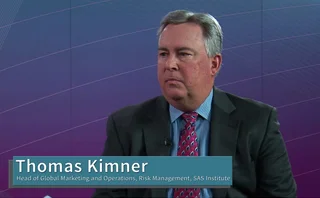
Isda backs Bear Stearns appeal against Enron
The International Swaps and Derivatives Association and the Bond Markets Assocation (BMA) have backed Bear Stearns' latest attempt to keep hold of $25.9 million in payments on a stock forward agreement, in the face of Enron's attempt to recover it.
As part of the bankruptcy process, Enron filed suits in 2003 against Bear Stearns and three other banks - CSFB, Lehman Brothers and UBS - asking for the return of payments made in 2001 in connections with derivatives trades. Enron's argument was that it was already insolvent - although not in Chapter 11 - when the payments were made.
Bear Stearns and the other banks, backed by both Isda and the BMA, argued that the payments were protected by the safe harbour provisions of the US bankruptcy code. They warn that allowing Enron to claw back the payments could lead to the disruption of the financial markets.
However, when the original suit reached the New York Southern District bankruptcy court in April this year, the court ruled in Enron's favour, blocking a motion to dismiss filed by Bear Stearns. The US firm, with support in an amicus brief from ISDA and the BMA, is now seeking an appeal against the decision.
In the filing, Isda warns that "the bankruptcy court's ruling effectively eviscerates the safeguards" and adds that the opinion, if left unreviewed, would "chill the financial markets, exactly the outcome Congress intended to prevent".
Only users who have a paid subscription or are part of a corporate subscription are able to print or copy content.
To access these options, along with all other subscription benefits, please contact info@risk.net or view our subscription options here: http://subscriptions.risk.net/subscribe
You are currently unable to print this content. Please contact info@risk.net to find out more.
You are currently unable to copy this content. Please contact info@risk.net to find out more.
Copyright Infopro Digital Limited. All rights reserved.
As outlined in our terms and conditions, https://www.infopro-digital.com/terms-and-conditions/subscriptions/ (point 2.4), printing is limited to a single copy.
If you would like to purchase additional rights please email info@risk.net
Copyright Infopro Digital Limited. All rights reserved.
You may share this content using our article tools. As outlined in our terms and conditions, https://www.infopro-digital.com/terms-and-conditions/subscriptions/ (clause 2.4), an Authorised User may only make one copy of the materials for their own personal use. You must also comply with the restrictions in clause 2.5.
If you would like to purchase additional rights please email info@risk.net
More on Infrastructure
Communications surveillance solutions 2024: market update
A report offering Chartis’ latest view of the vendor landscape for communications surveillance solutions
SIMONE, the AI that nearly took down a bank
An algorithm designed to create new structured products ran out of control last year with almost catastrophic consequences for a major bank, as our exclusive whistleblower account reveals
Revealed: where banks are (literally) warehousing their swaps
As derivatives notional grows, dealers experiment with novel storage solutions
E-trading takes hold for FX swaps – sort of
Bulk of trades are being executed over screen, but bolder changes have stalled
From DNA to DHA – Preparing for a new era of digital human augmentation
As technology increasingly permeates societies, cultures and everyday activities, its integration into people’s lives is having a profound impact on what is expected of people in the workplace. Deloitte examines this evolution of today’s workforce, the…
Risk and finance: Working more closely together
Video interview: Thomas Kimner, SAS
Video interview: Fabio Merlino, Intesa Sanpaolo
Fabio Merlino, head of retail and insurance risk discusses how the wealth management division of Intesa Sanpaolo upgraded its risk analytics capabilities with the algo system used by its proprietary traders
The changing face of Risk.net and our magazines
Extensive reader consultation has helped us reshape editorial teams and our site







